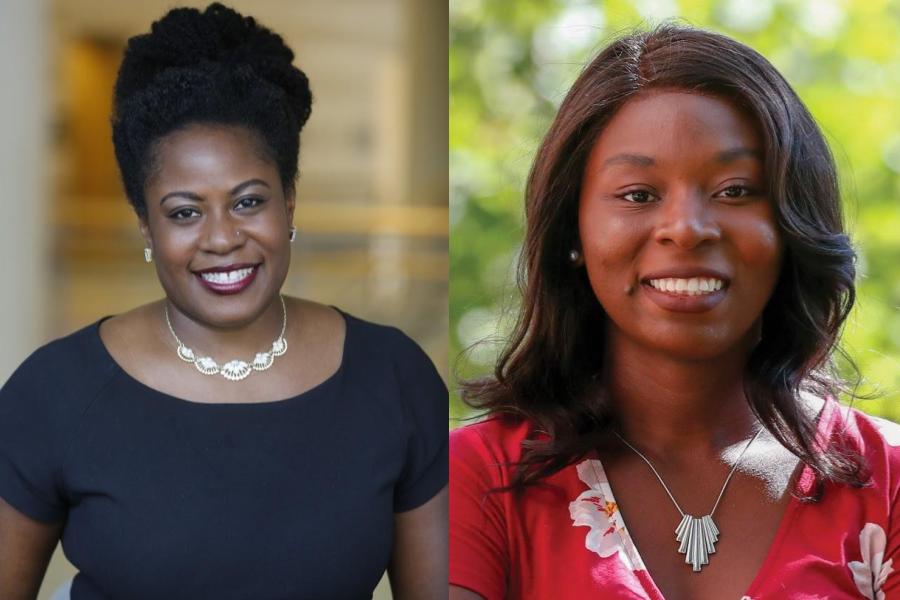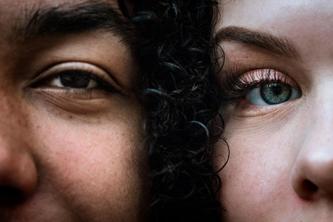
Black birthing people face many unique challenges in the maternal health space. In observance of Black Maternal Health Week, Associate Professor Rachel Hardeman and Doctoral Candidate J’Mag Karbeah share how their work in the Center for Antiracism Research for Health Equity strives to create equitable access to pre- and postnatal care.
Q: What is Black Maternal Health Week, and why does it matter?
Prof. Hardeman: Founded five years ago by the Black Mamas Matter Alliance (BMMA), Black Maternal Health Week (BMHW) celebrates the resilience, advocacy, and changemaking of Black birthing people and their families. Due to structural racism, Black birthing people are three times as likely to die than white counterparts from preventable causes related to pregnancy and childbirth. BMHW raises awareness of this tragedy and the solutions to this fixable problem.
Q: How does racism impact access and quality for health care for Black birthing people?
Karbeah: There are intersecting issues regarding access and quality of pre- and postnatal care for Black birthing people. Our team has advocated for expanding Medicaid coverage of health care so pregnant people never lose access to coverage during their pregnancy or in the critical year after birth. However, just getting financial coverage to care isn't enough. Studies have found that many birthing people of color, particularly those who are Black and Indigenous, report high levels of mistrust, experiences of disrespect, and a lack of autonomy when receiving prenatal care.
Prof. Hardeman: This is a huge problem. Infamous case studies like Serena Williams' near-deadly birth experience show what happens when care providers don't listen to Black birthing people under their care. Birthing people know their bodies, but the concerns of Black birthing people are not treated equally.
Q: How can health providers improve health outcomes for Black birthing people & their babies?
Prof. Hardeman: These are fixable problems, and our research has shown evidence-based models of care dramatically improve health outcomes for Black birthing people and their babies. We have a multi-year partnership with Roots Community Birth Center (Roots), a freestanding birthing center in Minneapolis.
Karbeah: Roots has an antiracist care model that centers culture and relationships, has more and longer prenatal visits, and includes postpartum check-ups and support. And it works! From both the standard of health outcomes and self-reported feelings of autonomy and respect, the Roots model is a standard for excellence. We would love to see the Roots model expanded to other health systems with full funding.
Q: What policy solutions improve Black birth outcomes?
Karbeah: Policy can create positive systemic change by re-allocating resources to the people and communities that have suffered the worst burdens and acknowledges centuries of underinvestment, which have led to today’s inequities. This should include expanding health coverage of pre- and postnatal health care, investing in implicit bias training programs for care providers, and fully funding evidence-based models of care like the Roots model.
Prof. Hardeman: We're proud of the leadership in this area shown by the Minnesota state legislature. For example, the Dignity in Pregnancy and Childbirth Act is taking great strides toward these kinds of solutions. One element of the Dignity in Pregnancy and Childbirth Act will facilitate the creation of antiracist training for perinatal care providers in the state of Minnesota. We hope to see this momentum continue in the current and future legislative sessions.
Q: How does your work help improve the current public health care landscape for Black birthing people?
Prof. Hardeman: At the Center for Antiracism Research for Health Equity (CARHE), we center the voices, insight, and expertise of those closest to the pain in our research. That is what makes antiracism research revolutionary: it isn't a paternalistic model of Ivory Tower scientists, it is a shift towards true power sharing and collaboration.
Karbeah: Black birthing people know their bodies, they know how racism impacts their lives, and they know what they need to be healthy. As researchers, it's not our job to tell them what is good but to amplify their self-identified solutions. As we continue to work with Roots and to continue our work to identify, understand, and dismantle structural racism, we will push health care towards a more antiracist future.
Rachel Hardeman is an associate professor in the School of Public Health and the founding director of the Center for Antiracism Research for Health Equity (CARHE). J’Mag Karbeah is a doctoral candidate in the School of Public Health and a senior research advisor for CARHE. Hardeman and Karbeah use antiracism research, community engagement, and narrative change to identify, explore, and dismantle structural racism.
-30-
About the School of Public Health
The University of Minnesota School of Public Health improves the health and wellbeing of populations and communities around the world by bringing innovative research, learning, and concrete actions to today’s biggest health challenges. We prepare some of the most influential leaders in the field, and partner with health departments, communities, and policymakers to advance health equity for all. Learn more at sph.umn.edu.
About “Talking...with U of M”
“Talking...with U of M” is a resource whereby University of Minnesota faculty answer questions on current and other topics of general interest. Feel free to republish this content. If you would like to schedule an interview with the faculty member or have topics you’d like the University of Minnesota to explore for future “Talking...with U of M,” please contact University Public Relations at [email protected].
- Categories:
- Health




